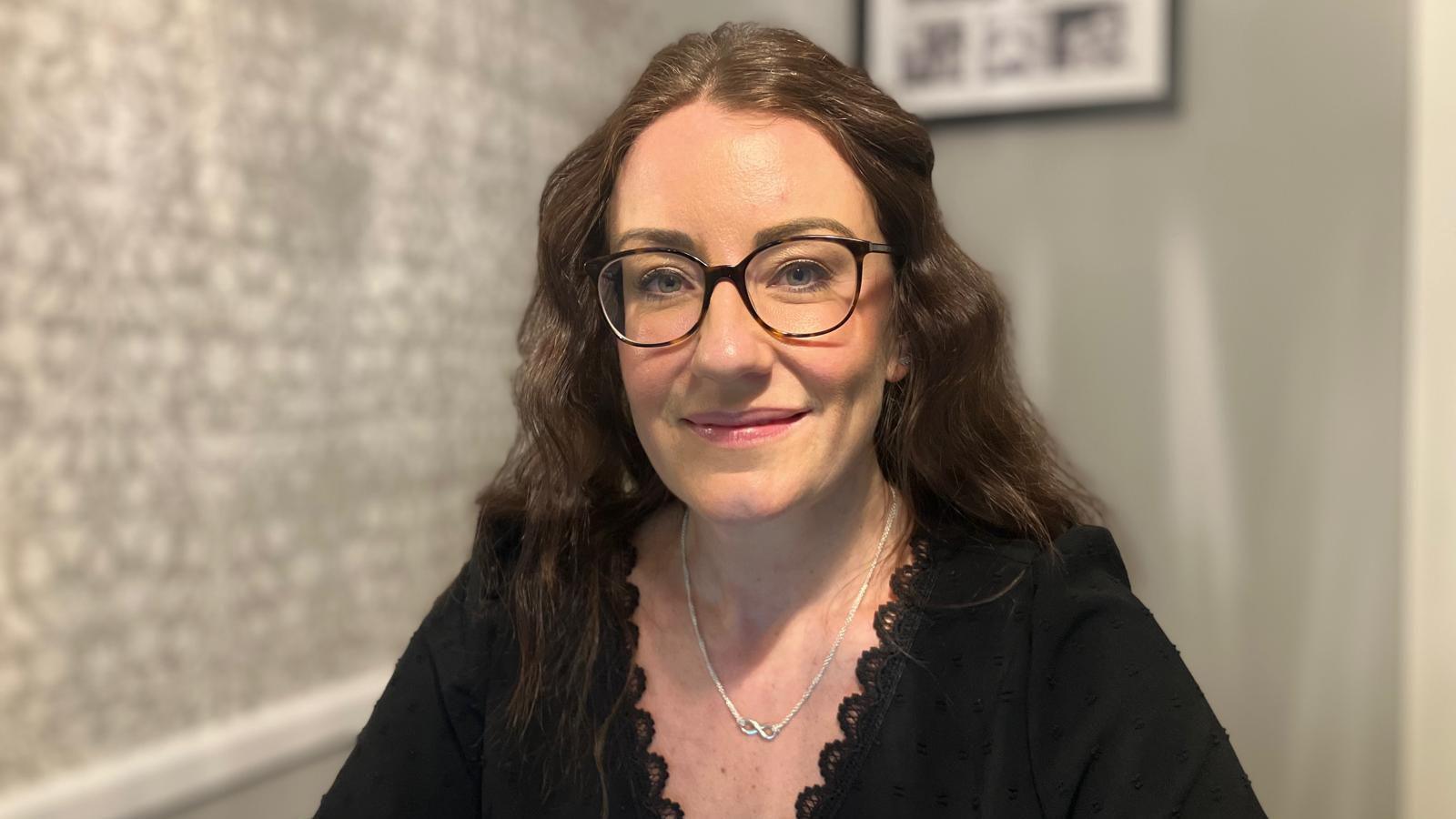'Employers don't understand endometriosis'

Samanatha Gelder said she felt like she had to leave previous employers because of her endometriosis
- Published
A mother-of-two has called for better workplace support for people with endometriosis, saying she felt many employers "didn't understand" the condition.
Samantha Gelder, 37, said she had undergone repeated operations since she was diagnosed, often needing to take prolonged periods of time off work.
She said she had felt "unsupported" by previous employers and felt unable to pursue some senior roles due to the lack of provision.
Ms Gelder, from Leeds, spoke to the BBC after Sheffield Brightside and Hillsborough MP Gill Furniss led a debate on the impact of endometriosis on women in the workplace.
Endometriosis is the name given to the condition where cells similar to those in the lining of the womb grow in other parts of the body.
Like the womb lining, the tissue builds up and bleeds every month, but with no way to escape the body the blood is trapped, leading to symptoms such as heavy periods, severe period pain and fatigue.
According to Endometriosis UK the condition affects around 1.5m women in the UK.
Ms Gelder said she had undergone more than 10 operations since being diagnosed as a teenager, including having the lining of her womb removed, and was currently waiting to have a hysterectomy.
However, she said at times her employers had not given her the support she needed and has called for women with the condition to be supported in the same way as "those with cancer or those going through the menopause."
"I have left jobs due to them being not very supportive" she said
"When I have been in and out of hospital they have not supported attending doctors appointments.
"They have done written return to works and assessed my medical capability; you wouldn't do that with someone with cancer or going through the menopause."
She said the experience affected her confidence.
"I took a step back post-surgery because I thought I cannot do a senior role any more; I am going to need time off.
"It was not really the right thing to do because anybody could need time off and they just need support from work.
"So many people suffer with low self-esteem and feel they cannot put themselves forward for promotion."
According to Endometriosis UK, one in six people with endometriosis has to leave the workplace due to their condition.
A spokesperson for the charity said it was "unacceptable" and "vital" government and employers take action to protect those with endometriosis from "unfair practices" in the workplace.
"We hope government will take note of the changes needed to better support those with endometriosis at work - including amendments to the Employment Rights Bill," the said.
Sheffield MP to raise awareness of endometriosis
Speaking in Parliament on Wednesday night, Ms Furniss said: "Endometriosis should not mean women have to put their careers on hold and leave the jobs they've worked so hard to get.
"Employers can take simple steps like offering flexible working, access to period products and time off to attend appointments."
Ms Furniss said that the condition was first identified in 1860 but that progress in improving the lives of sufferers since had been "glacial".
Ms Gelder, who dedicates her time to raising awareness and funds to support women with endometriosis, said: "Even though you are suffering with the disease, you can absolutely thrive and have a great career, it is just getting those right environments for people to be working in.
"It would be great to see a lot more HR policies covering endometriosis in the workplace, given how many people it does impact.
"If you've got a great employee, does it really matter that a few days a month when they're really struggling with their endometriosis that they're sat at home with a hot water bottle?"
Listen to highlights from West Yorkshire on BBC Sounds, catch up with the latest episode of Look North or tell us a story you think we should be covering here, external.
Related topics
Related internet links
- Published21 May 2024

- Published20 September 2024

- Published23 March 2024
